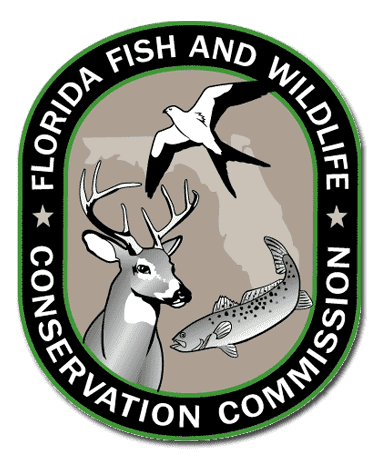First Florida TrophyCatch Bass Comes from Lake Talquin

Corey Dolan of Tallahassee celebrated landing a 12.3-pound largemouth bass on Lake Talquin and released it Tuesday afternoon to become the first entrant in the Florida TrophyCatch program. TrophyCatch is an innovative program initiated Oct. 1 by the Florida Fish and Wildlife Conservation Commission (FWC) to reward anglers for being great resource stewards by legally catching and releasing trophy largemouth bass.
Dolan started fishing at sunrise on his last day off before starting a new job and was rewarded when he cast a rubber worm to a point of lily pads around 1:30 in the afternoon. His trophy struck ferociously and fought to escape by heading back toward the lily pads as Dolan manipulated both rod and trolling motor to land the 27-inch-long bass.
Dolan checked out TrophyCatchFlorida.com from his smartphone and ultimately connected with the TrophyCatch hotline. FWC biologists Doug Engel and Joshua Gold arrived at Coe’s Landing an hour later to determine a certified weight of 12.33 pounds – just short of the Hall of Fame mark (13 pounds) but qualifying for the Trophy Club. Dolan will receive $100 in gift cards from sponsors such as Bass Pro Shops, Dick’s Sporting Goods and Rapala lures, plus a long-sleeve TrophyClub shirt from Bass King, and discounts from New Wave Taxidermy, FishPhoto Replicas and Sportsman On Canvas.
KP Clements, the FWC’s TrophyCatch coordinator, said that as the first TrophyCatch angler, he will also receive a special one-day entry pass to fish at the famed Bienville Plantation and is entered into drawings for other great prizes.
Dolan started fishing as a youngster with his mom while growing up in the Tallahassee area. The fishing bug has struck hard, and now he’s molding his own rubber worms and hoping one day to catch the next record Florida largemouth bass, by certifying a fish heavier than 17.27 pounds.
TrophyCatch includes three tiers to encourage reporting and live-releasing bass heavier than 8 pounds that are caught in Florida waters. Bass 8 to 9.9 pounds (Lunker Club) or those 10 to 12.9 pounds (Trophy Club) that are caught, documented and released can be reported online at TrophyCatchFlorida.com any time of the year. All that is required to qualify for the many prizes is a photo of the entire fish on a scale with the weight visible, and one on a tape measure or ruler showing the length. Bass heavier than 13 pounds that are caught between Oct. 1 and April 30 each year must be certified by FWC staff to verify the weight and take genetic samples.
Certified catches that are released or provided to the FWC for research will be entered into the Hall of Fame club, making the angler eligible for the prizes. The World Fishing Network is partnering with the FWC to promote and manage the trophy bass website.
The biggest bass of the year entered into TrophyCatch will earn a Super Bowl-like ring, from the American Outdoors Fund, for the angler who catches it. If it is caught in Osceola County, the Kissimmee Convention and Visitors Bureau (CVB) will award the lucky angler $10,000. In addition, if the angler is on a guided fishing trip, the guide will receive $2,500 from the CVB.
“TrophyCatch will enable biologists to better manage freshwater fisheries by providing valuable incentives to anglers, such as Corey (Dolan), for reporting and releasing their catches of trophy bass,” said Tom Champeau, director of the FWC’s Division of Freshwater Fisheries Management. The information will be used to evaluate and improve management strategies that produce more and larger bass.
Of special interest is the fact that Lake Talquin has been the site of several largemouth-bass-stocking efforts as well as habitat improvement projects. Of the last 18 bass heavier than 9 pounds caught in the lake and tested this year, seven were tagged, hatchery-stocked fish.
“It is important for anglers to read and understand all the rules and details about rewards, which may change during the year, since they are provided by various sponsors,” said Clements (see TrophyCatchFlorida.com). However, just for registering, an angler is entered into a drawing for a Phoenix bass boat, Mercury motor and trailer.

